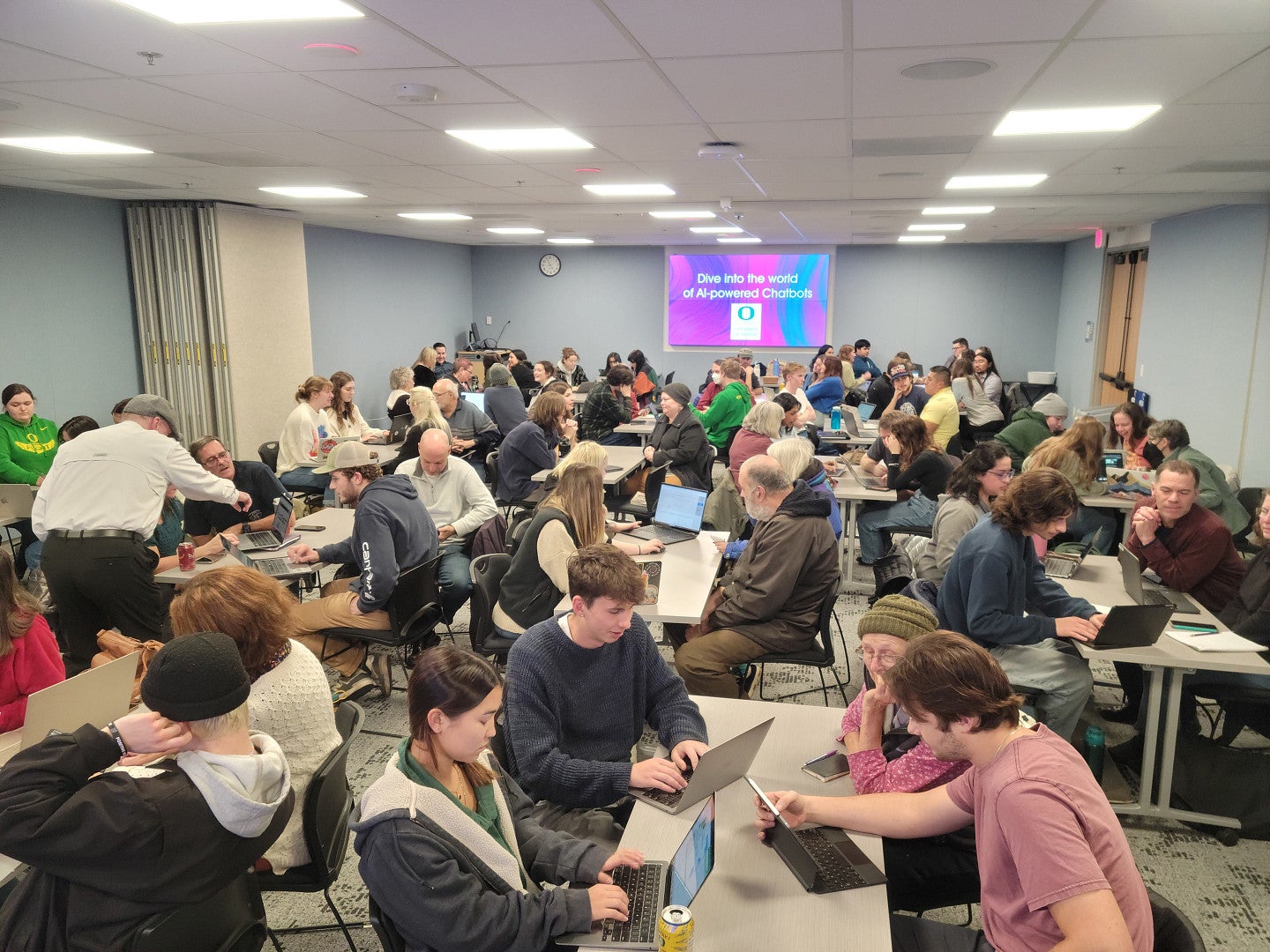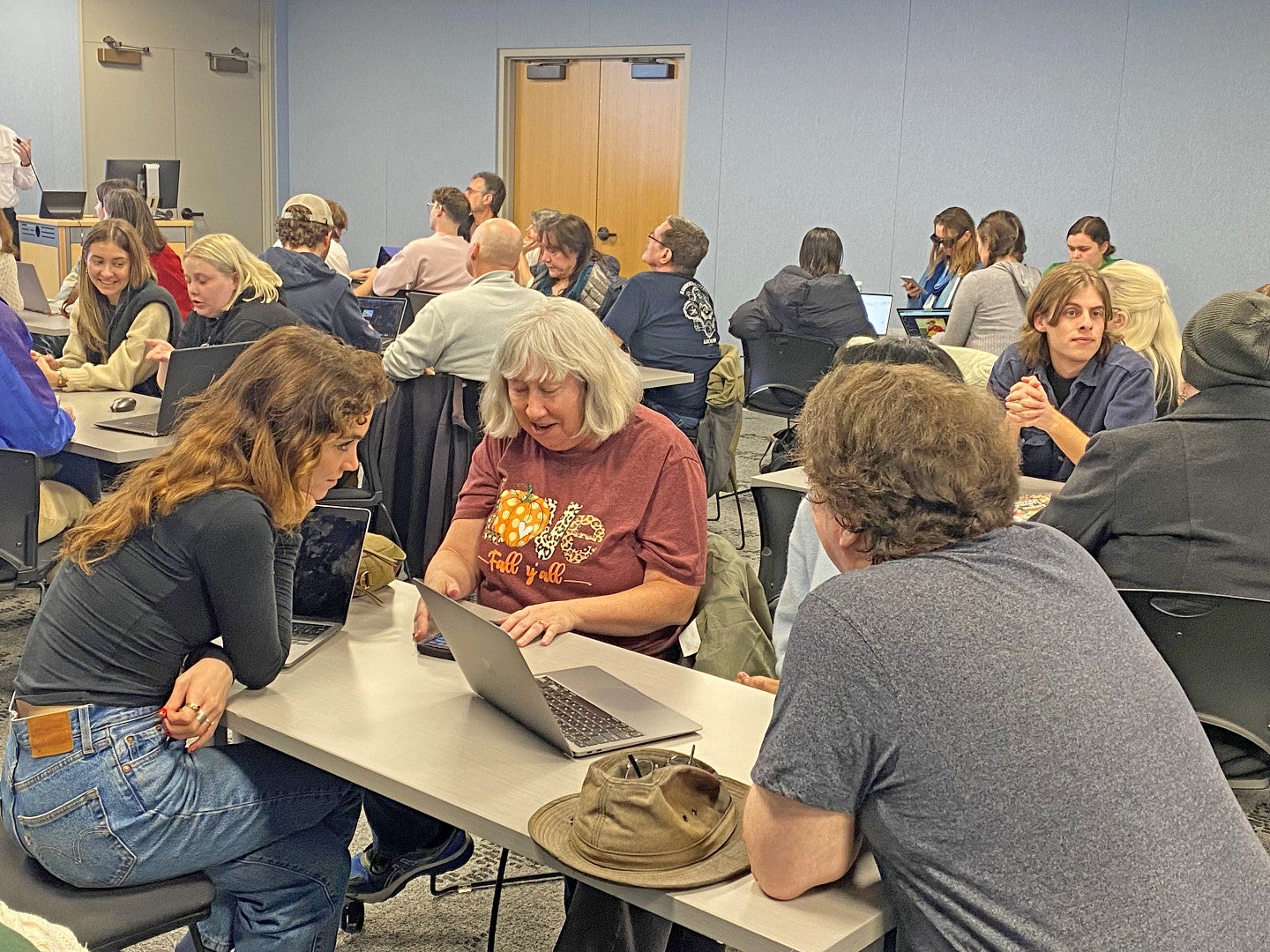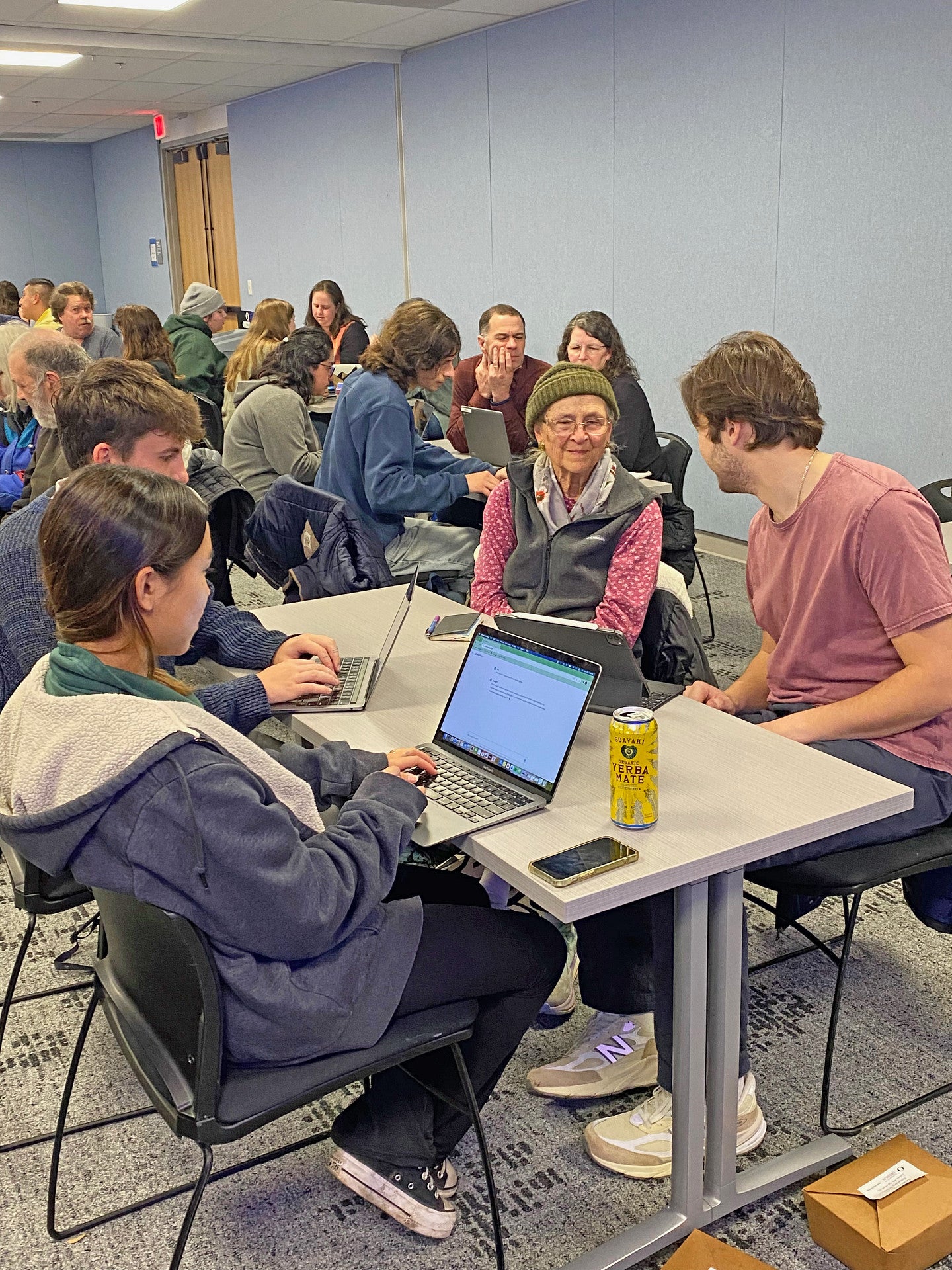On Monday, November 16, the Salem Public Library hosted a one-time collaboration between University of Oregon (UO) students from Professor Ric Stephen’s Green Cities PPPM (Planning, Public Policy and Management) 445 class and Salem residents eager to delve into the world of Artificial Intelligence (AI). This unique information session was organized in partnership with the University of Oregon's Sustainable City Year Program (SCYP) and arranged for 45 students to take a bus from Eugene to Salem to engage with a full room of attendees from Salem.

Accompanied by City of Salem staff and SCYP representatives, UO students led the hands-on learning session exploring the realm of artificial intelligence (AI), focusing on the concept of "Prompt Engineering". The students and Salem residents delved into the intricacies of refining large language models using specific prompts and recommended outputs.
The event showcased the students' creativity and adaptability as they employed ChatGPT utilizing prompts inspired by hypothetical instances and people. The students experimented with different tones, voices, and role assignments to study the impact on the generative capabilities of AI programs.
The interactive event allowed Salem residents to analyze and discuss the implications of AI from various professional roles. The students guided Salem residents through the nuances of AI and its potential applications in different sectors, fostering a dynamic exchange of ideas.

Sophia Sebastian, a fourth-year student majoring in Public Relations through the School of Journalism and Communications, participating in the Green Cities PPPM 445 class and serves as an account executive on Allen Hall Public Relations (AHPR) for SCYP.
“I found the event not only intellectually stimulating but surprising to know how much us college students knew about AI compared to the Salem residents,” said Sophia. “With AI being fairly new, my classmates and I did not know an extreme amount about AI prior to Ric’s class. I have not only learned about how AI works on a coding level, but I have a clear understanding of what I can envision it to do for us in the future.”
The engagement between UO students and Salem residents exemplified a commitment to community-driven education, a core principle of SCYP. Students participating in the event found it to be incredibly rewarding to teach the Salem community about AI as most of the participants were older who know very little about basic technology.
Sophia partnered with Julie, a retired Salem resident who loves to take road trips with her grandchildren and wants to know more about new-age technology.

"The interactions with students is my favorite part,” Julie said. “I have a better understanding with what AI can do and I feel more comfortable with it, and I think it’s something I can use in my everyday life to explore different options for communications and things that I’m interested in.”
Established in 2009, SCYP is now in its 14th year of partnerships with Oregon communities. After more than a decade, SCYP is returning for a second time to partner with the City of Salem for the 2023-24 school year to connect UO courses to implement real change drawing directly from community-identified issues. Through hands-on learning, SCYP harnesses the innovation of students and faculty to offer communities unique perspectives and ideas.
Communities emerge from SCYP partnerships with increased community outreach, expanded conversations, and cutting-edge solutions, while students emerge better prepared to enter the workforce. Over the course of the academic year, SCYP will continue to forge meaningful partnerships through more than 20 courses to bring innovative educational experiences to the Salem community. The success of this AI outreach event exemplifies the importance of bridging academia to help strengthen and impact Oregon communities.
Article by Sophia Sebastian.
Edited by Lindsey Hayward of Sustainable City Year Program.
